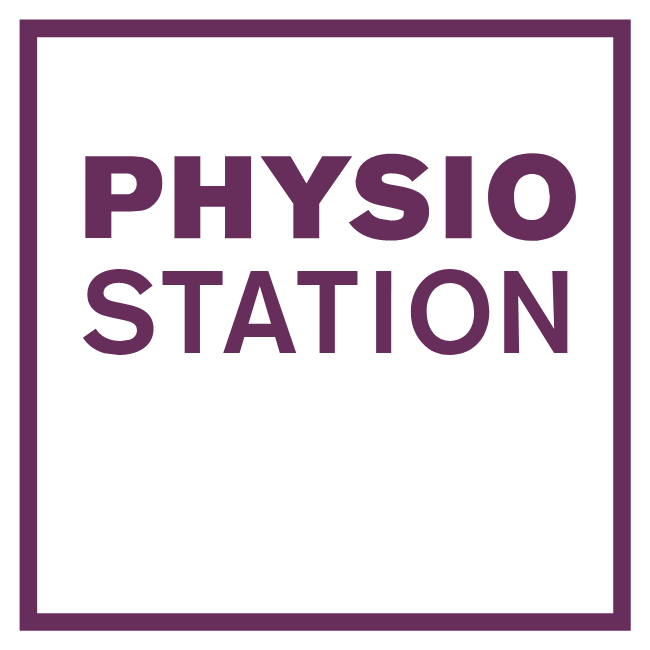Self-directed training
Self-directed training during therapy

- Appointments within 48 hours
- Modern stations
- Specialised staff
- Transparent communication
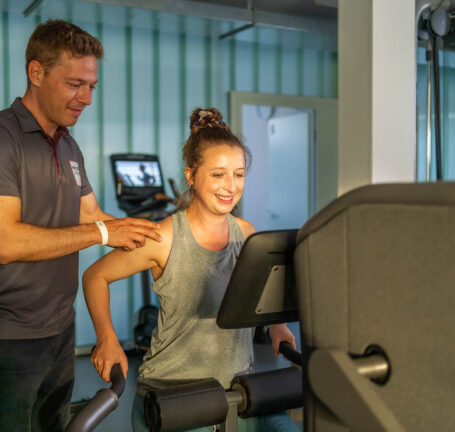
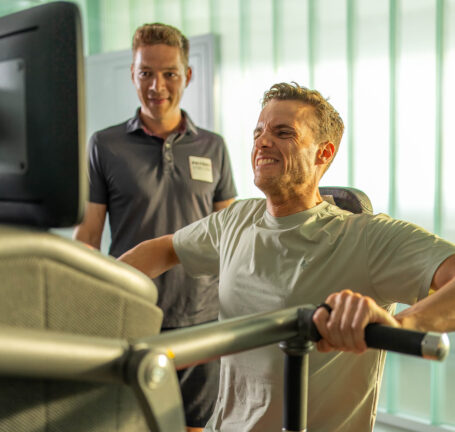
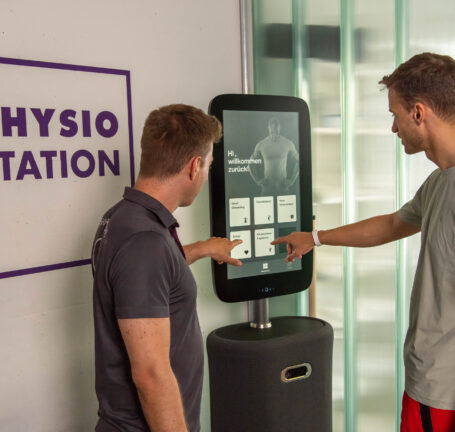
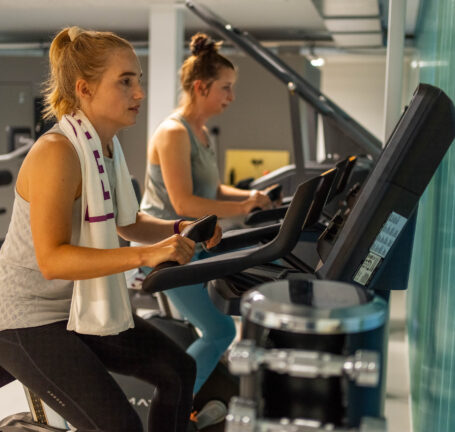
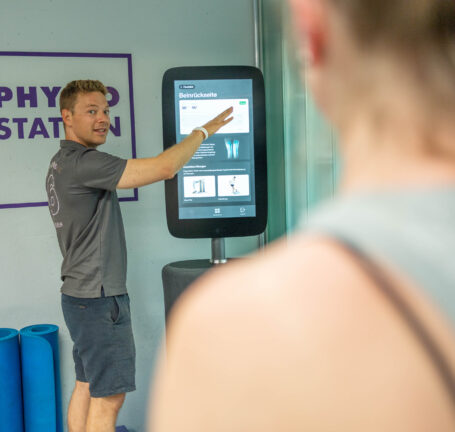
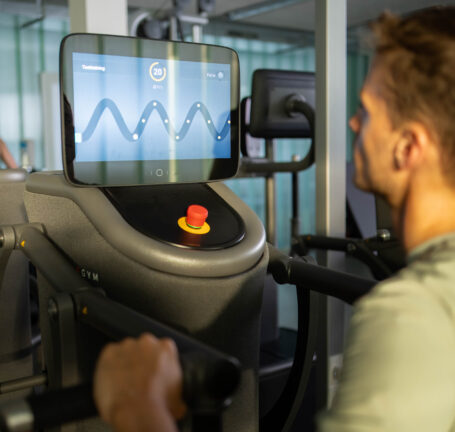
Train independently
Whether you are suffering from sarcopenia, have recently been injured or are in acute pain, personalized exercises will actively and sustainably promote your recovery. At our physio station, we will be happy to show you which methods are best for you. By participating diligently and training independently during your therapy, you can achieve long-term positive results and improve your quality of life.
Particularly helpful for:
- Train independently in the event of acute pain
- Train independently for sarcopenia
- Training independently after injuries
What does independent training during therapy mean?
In our practice, we place a high value on you, the patient, actively participating in your recovery. This means that you will be actively contributing to improving your health. This includes regular exercises that you can do both at our practice and at home. It is about not just passively waiting for treatment, but taking the initiative and continuously working on your fitness and mobility. Our role is to support.
The benefits of self-responsible training at a glance
- Accelerating recovery: Active training under the guidance of your physiotherapist can significantly speed up the healing process after injuries. By improving blood circulation, strengthening the affected muscles and improving neuromuscular control, you can overcome restricted mobility and pain faster
- Maintaining progress: The improvements in muscle strength, mobility and coordination achieved during physiotherapy must be maintained in the long term to avoid relapses. Regular self-training is the key to retaining the rehabilitation successes.
- Preventing consequential damage: Through continuous training, muscular imbalances and biomechanical deficits that can lead to injuries can be further compensated for This is how you strengthen your body’s stability and resilience and reduce the risk of future injuries.
- Improve quality of life: An active lifestyle with regular strength training not only supports your recovery, but also promotes your long-term health and well-being. It can reduce the risk of chronic pain, limited mobility and degenerative diseases, and improve your physical fitness and quality of life.
When is independent training particularly useful?
The key to successful rehabilitation is personal responsibility – regularity and continuity are crucial to achieving lasting positive results. Independent training makes sense for a variety of illnesses and complaints. In particular, it can help to speed up recovery, relieve pain and improve the body’s long-term functionality in cases of sarcopenia, after injuries or in the event of acute pain.
In our practice, we place a high value on you, the patient, actively participating in your recovery. This means that you will be actively contributing to improving your health. This includes regular exercises that you can do both at our practice and at home. It is about not just passively waiting for treatment, but taking the initiative and continuously working on your fitness and mobility. Our role is to support.
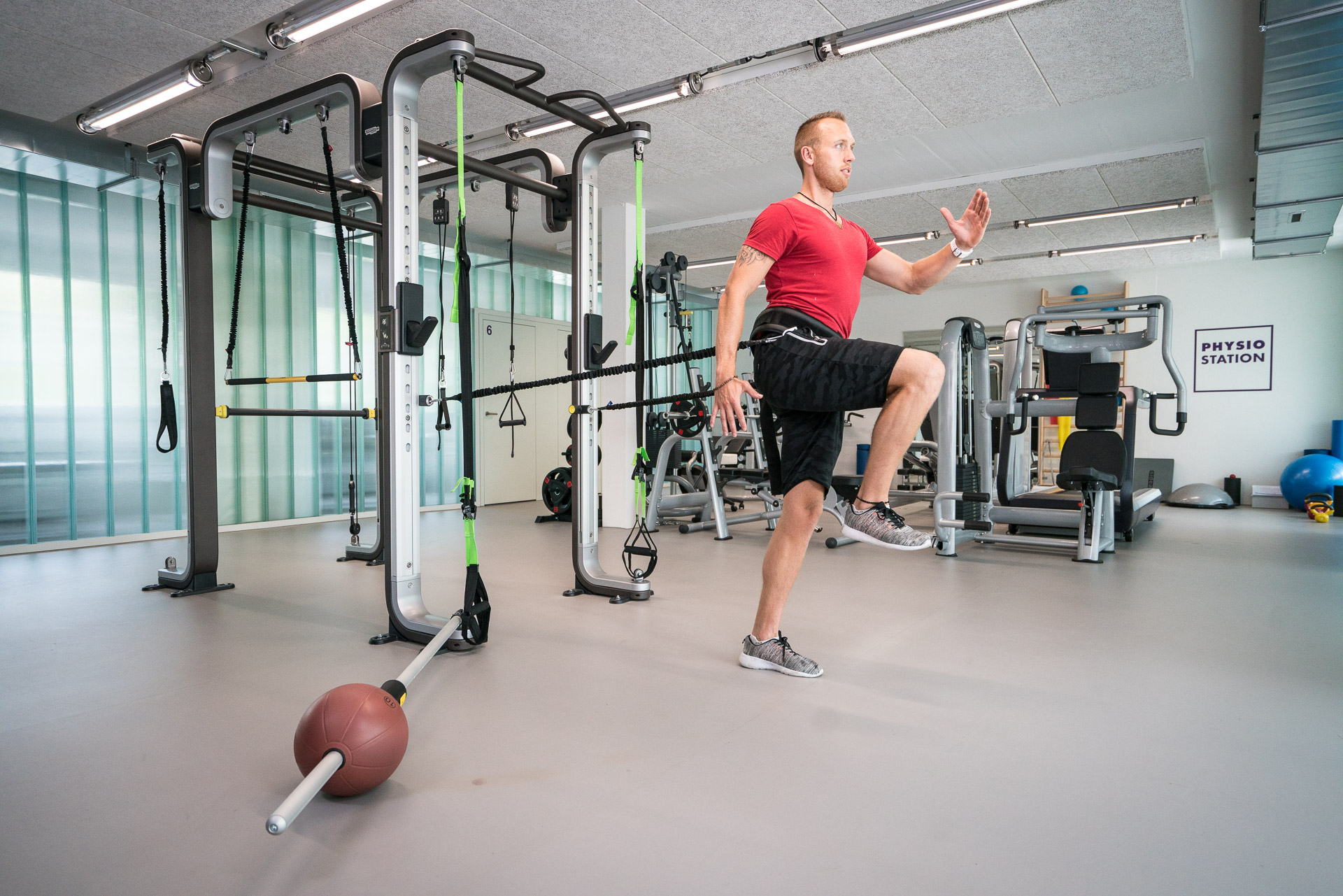
Are you interested in a training subscription at Physio Station?
Find out more about our various training programs and arrange your first trial session.





